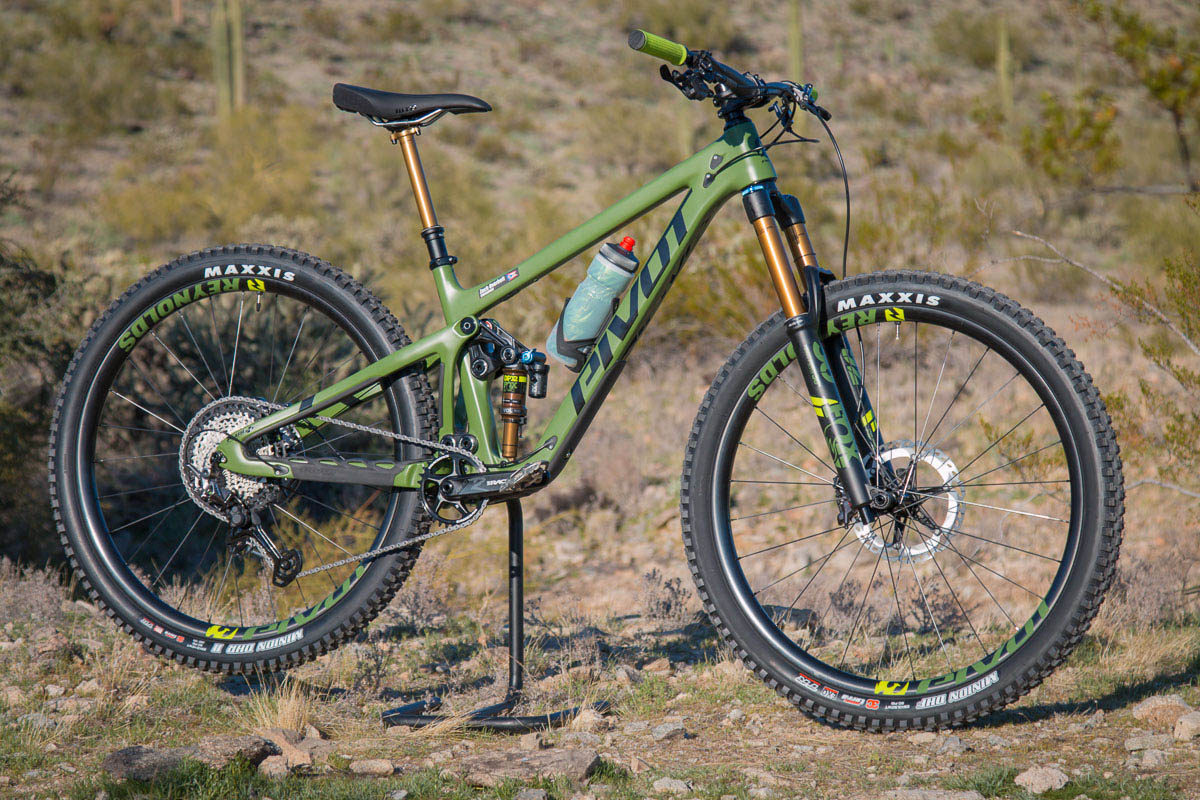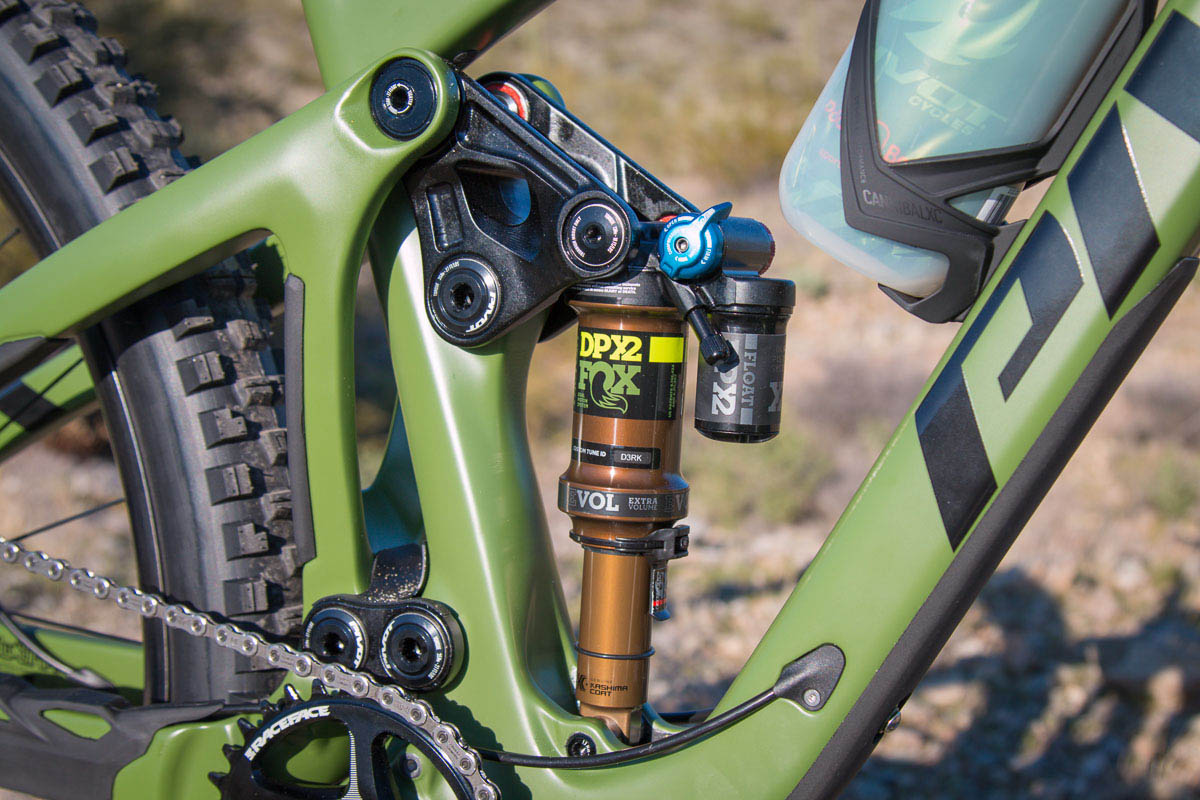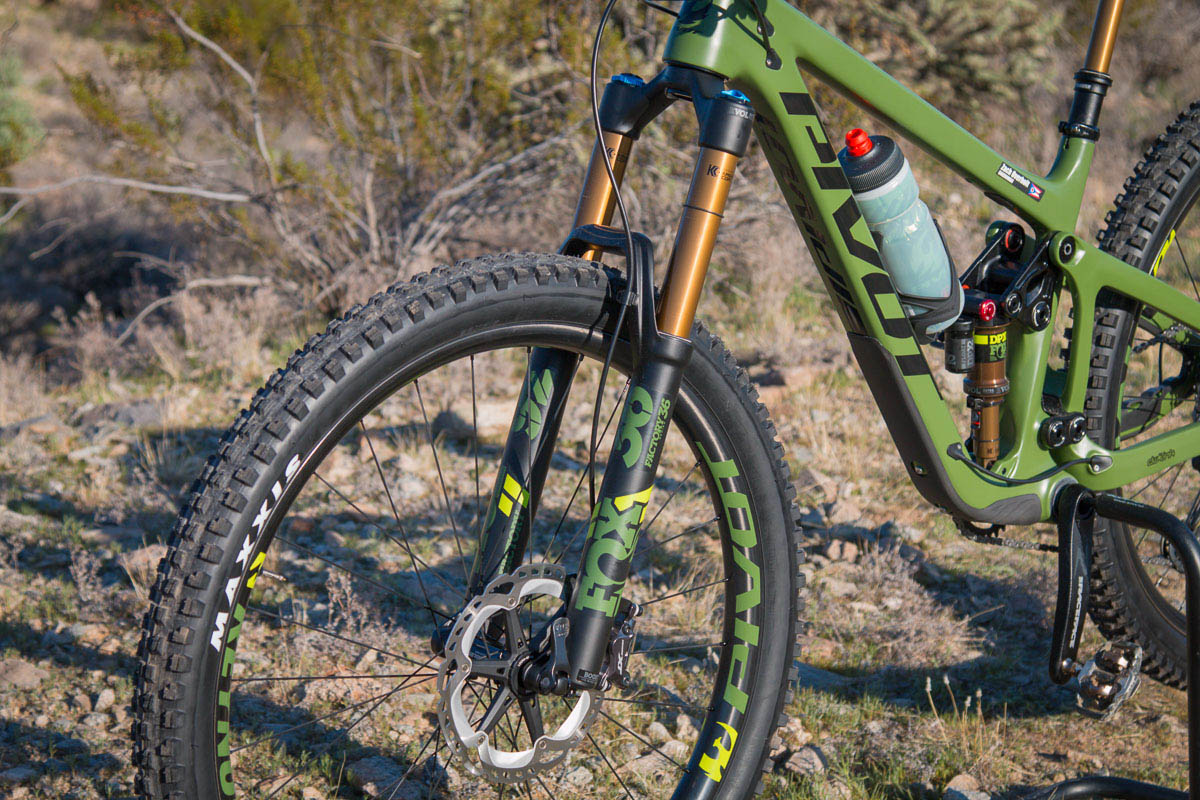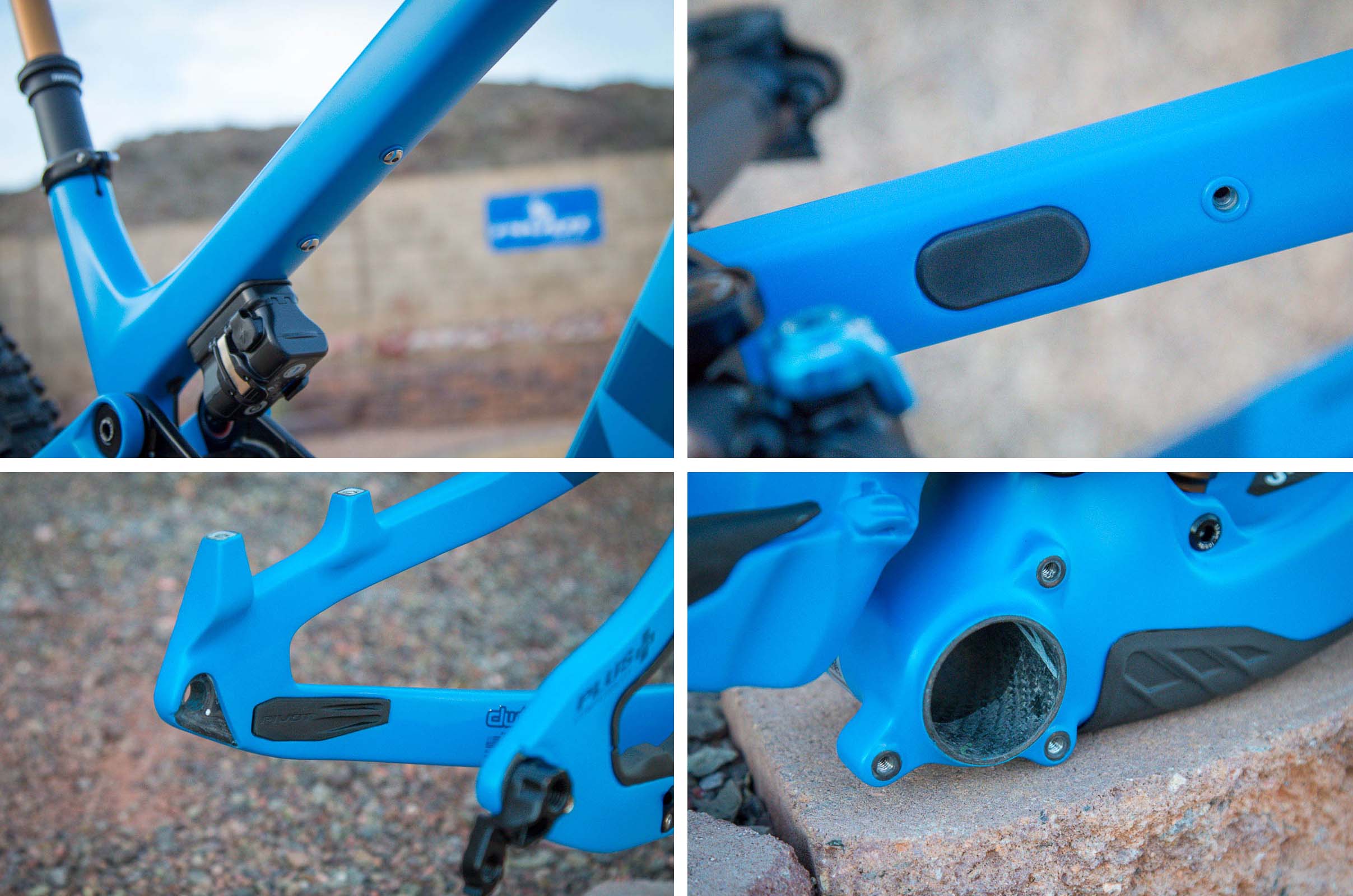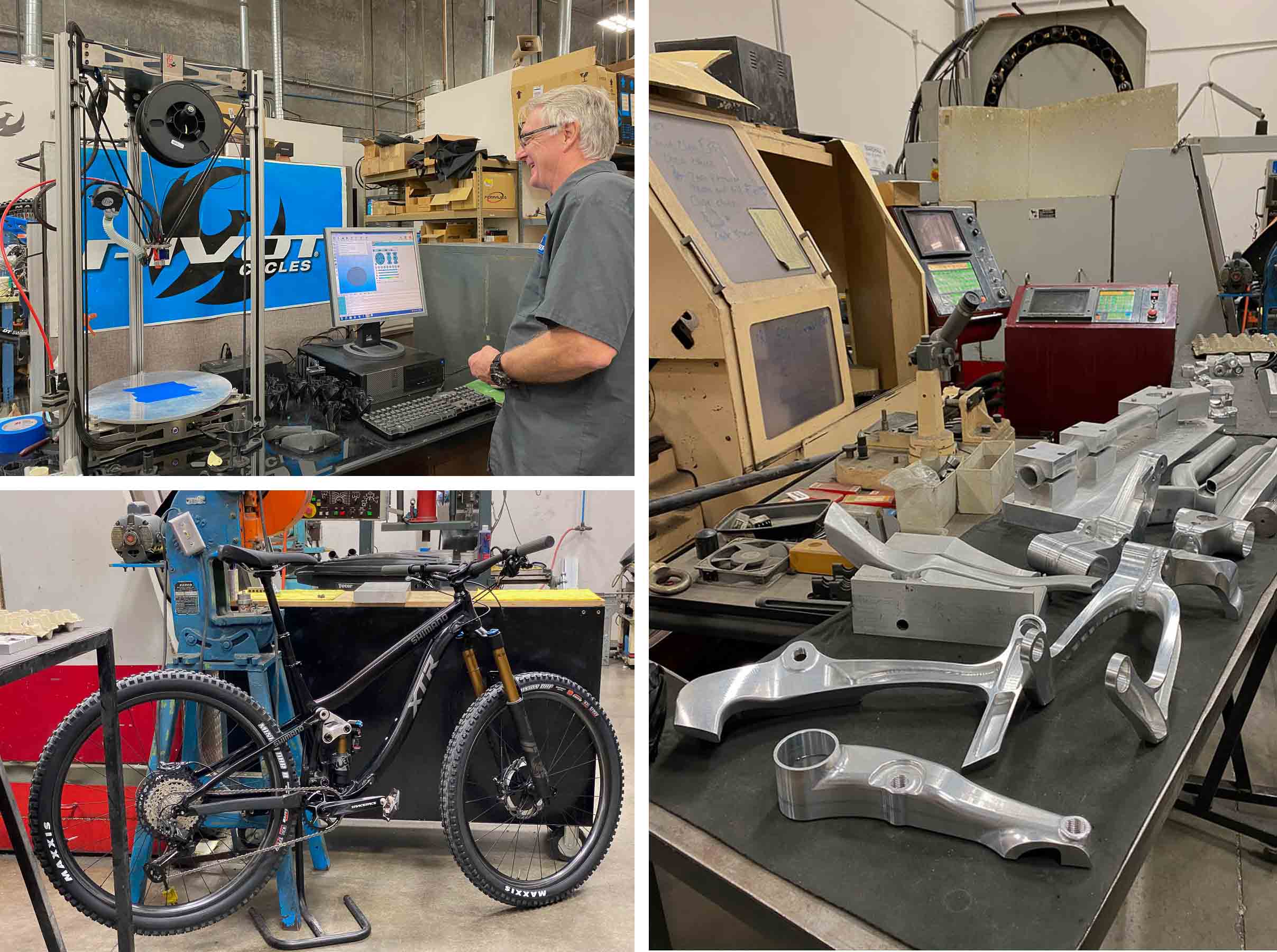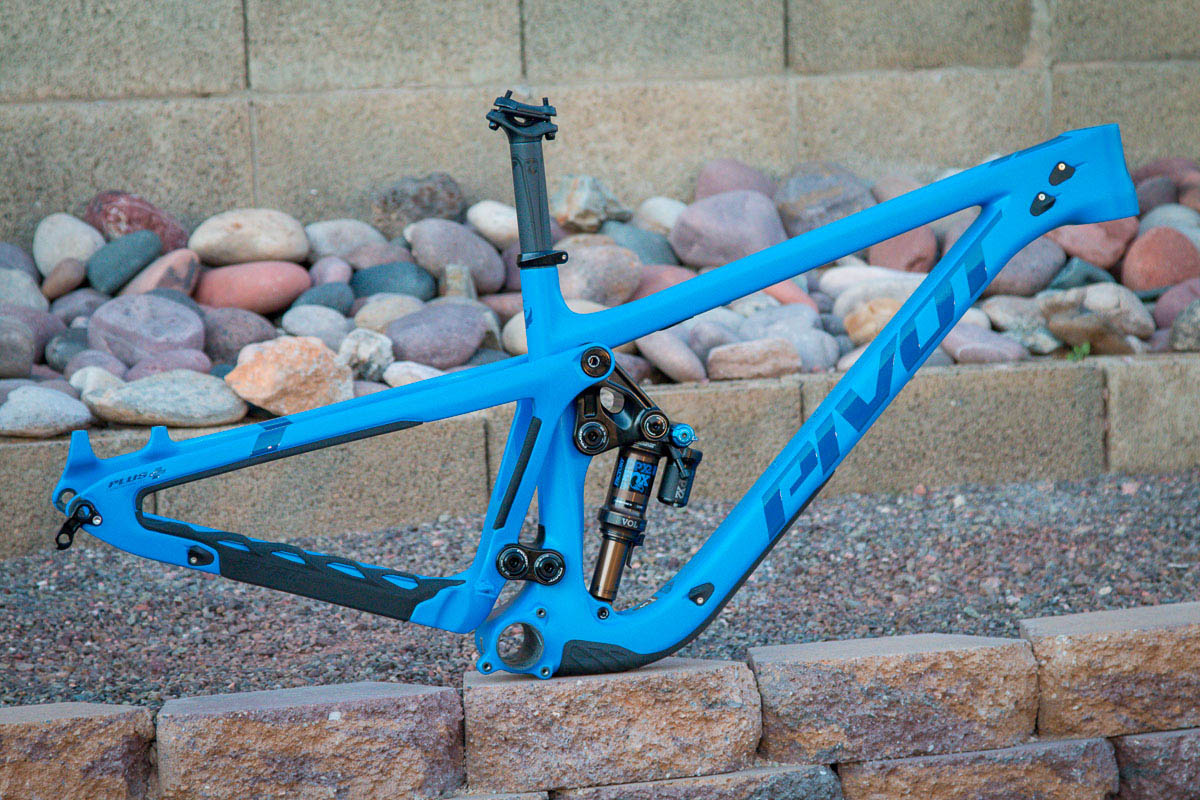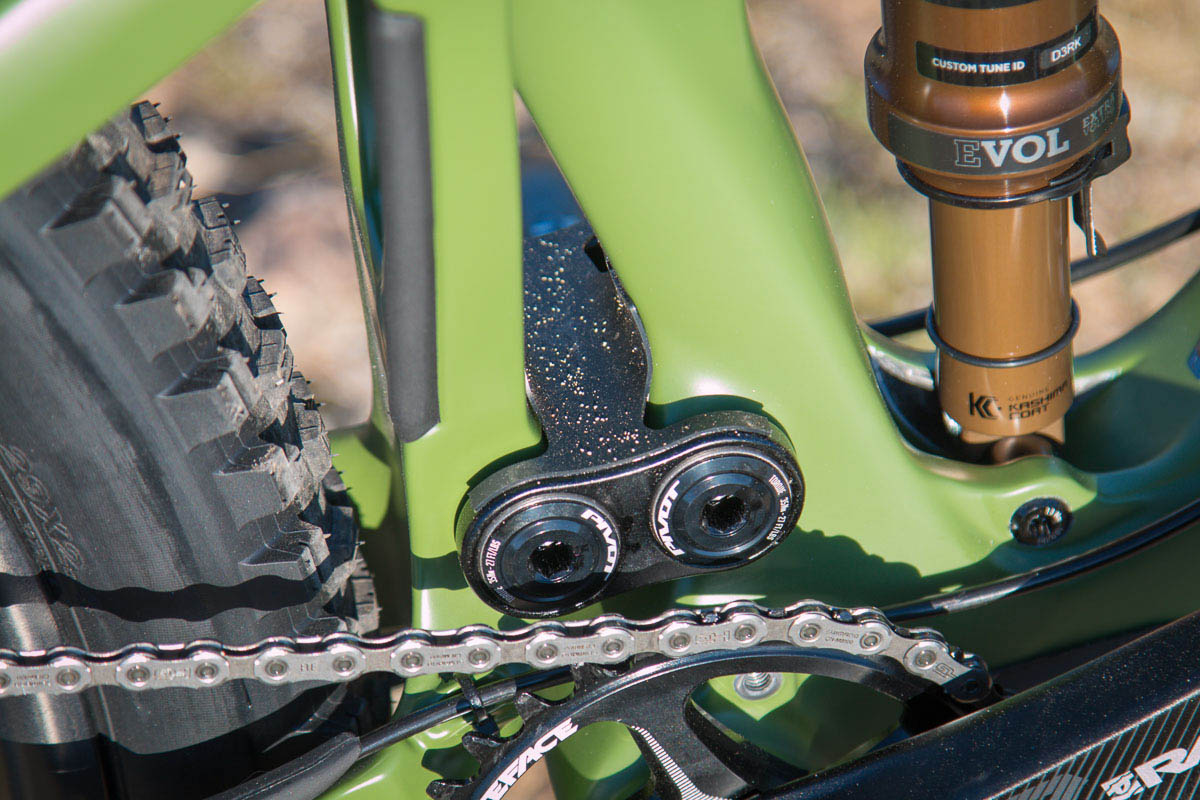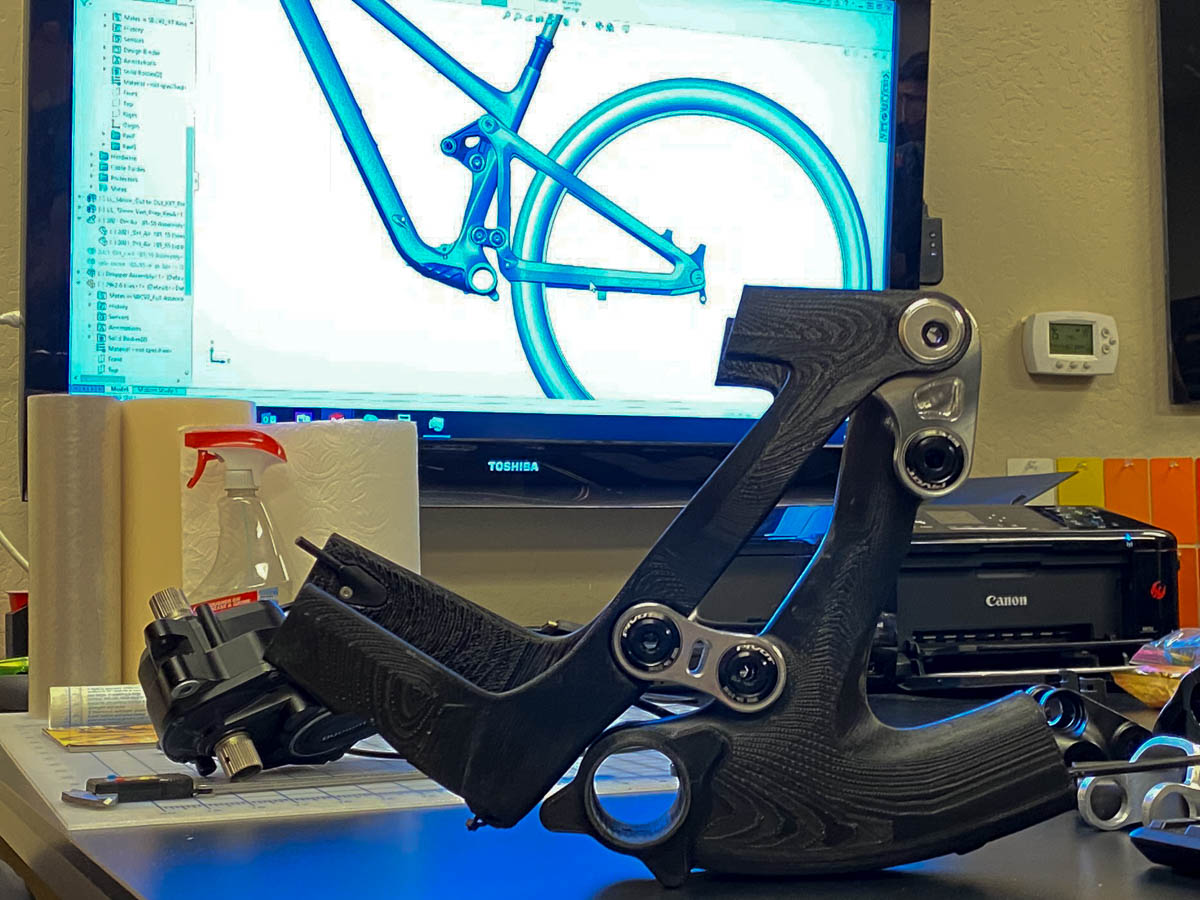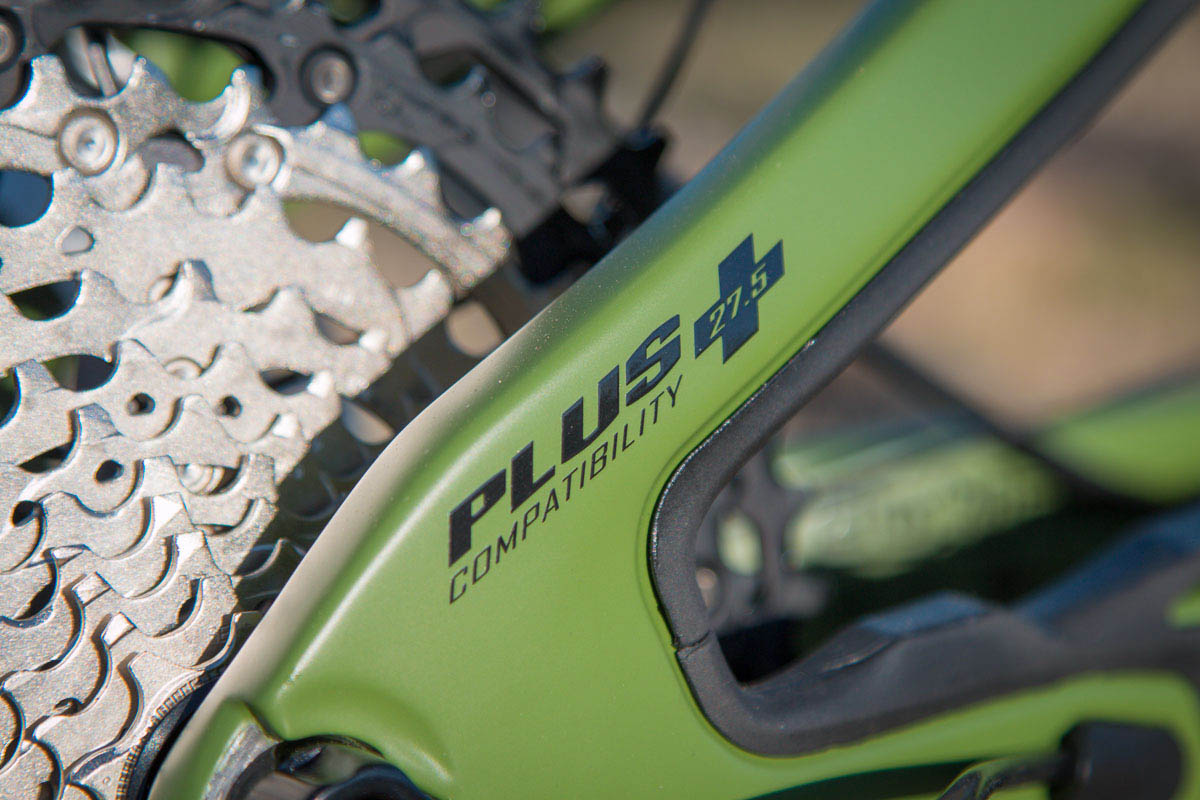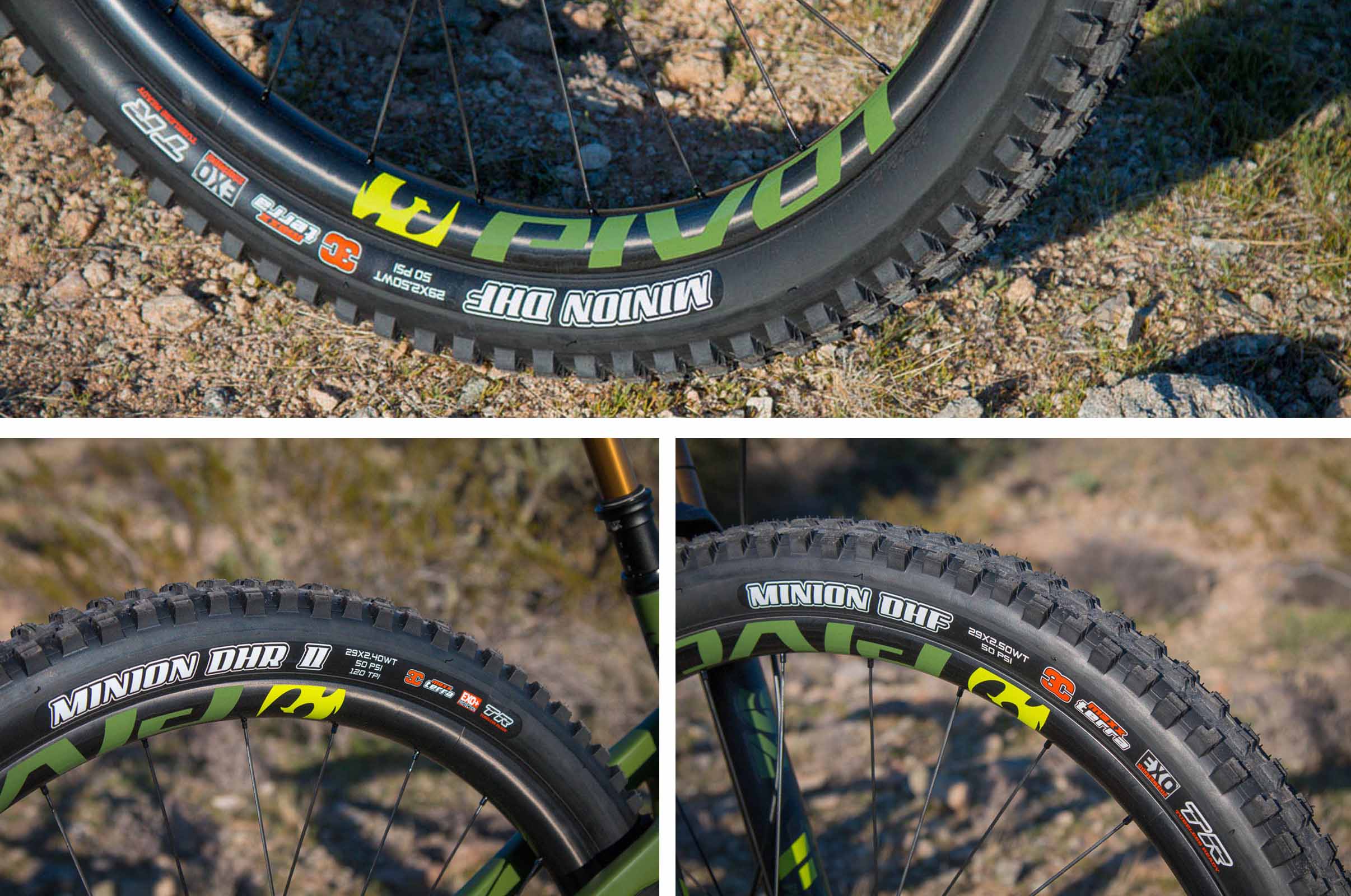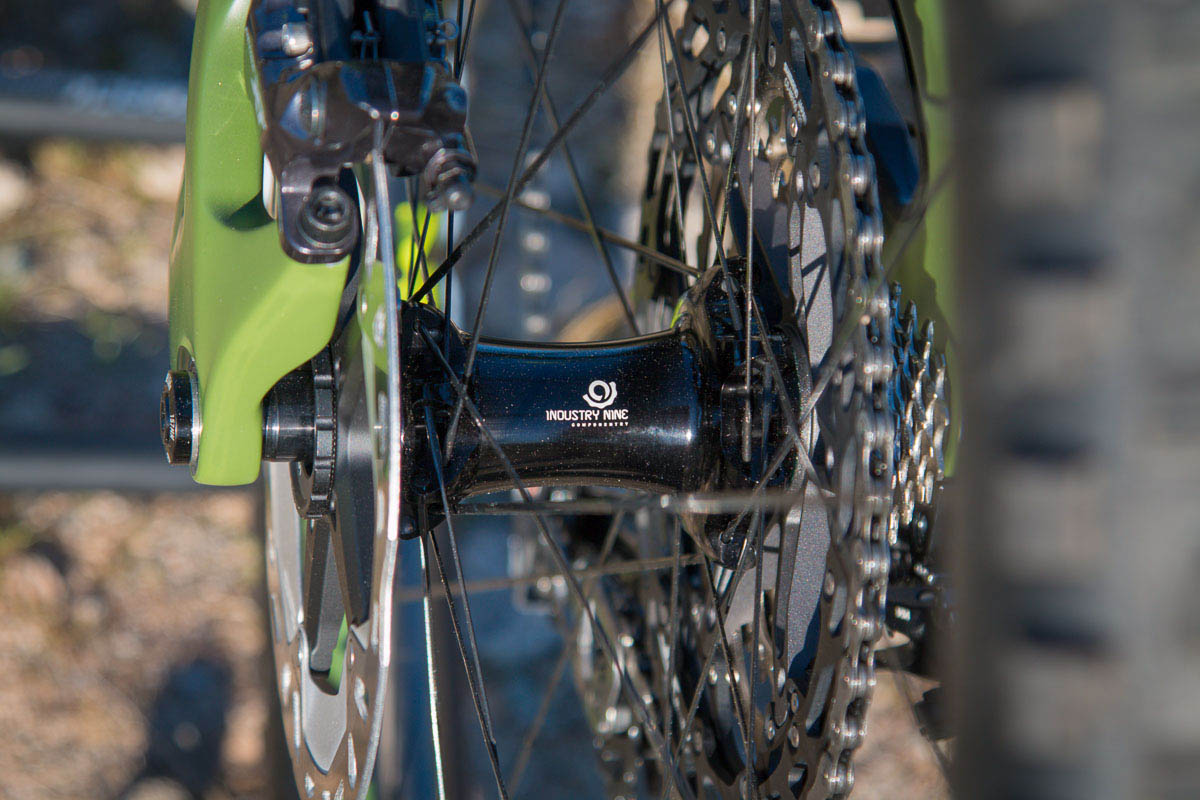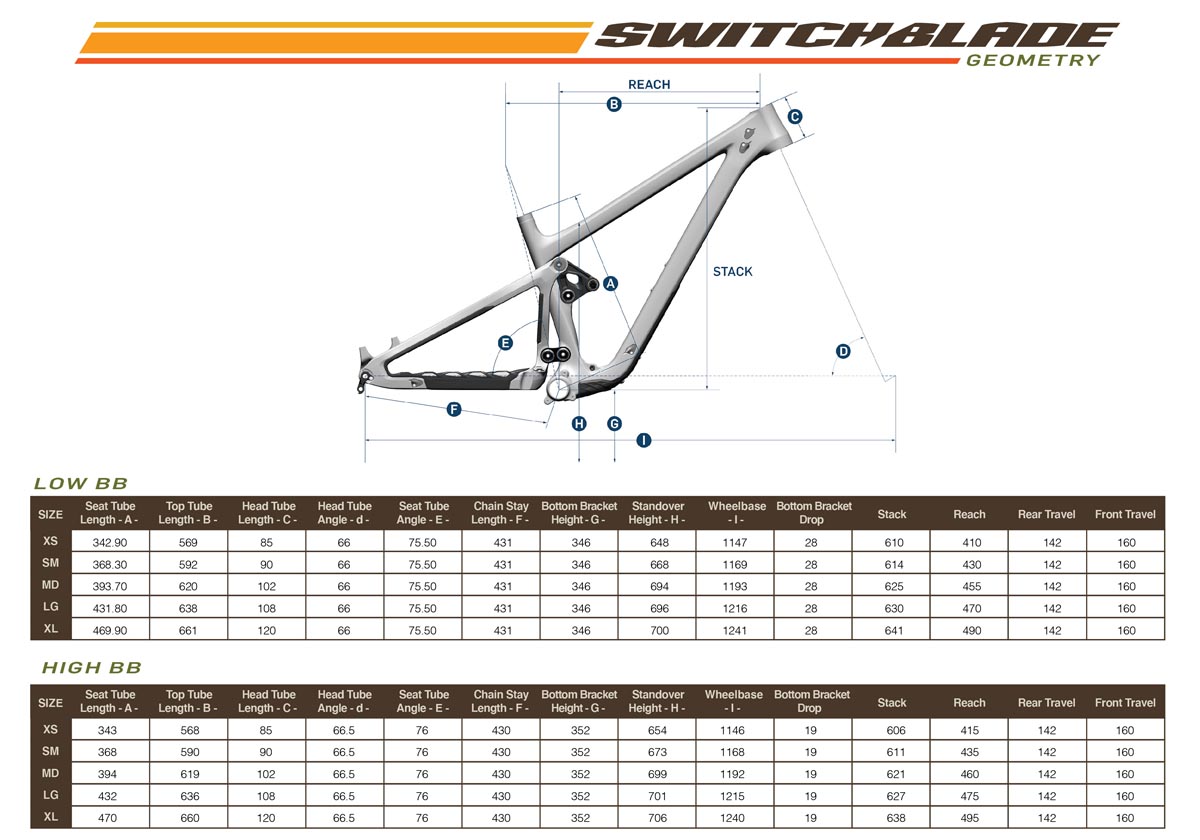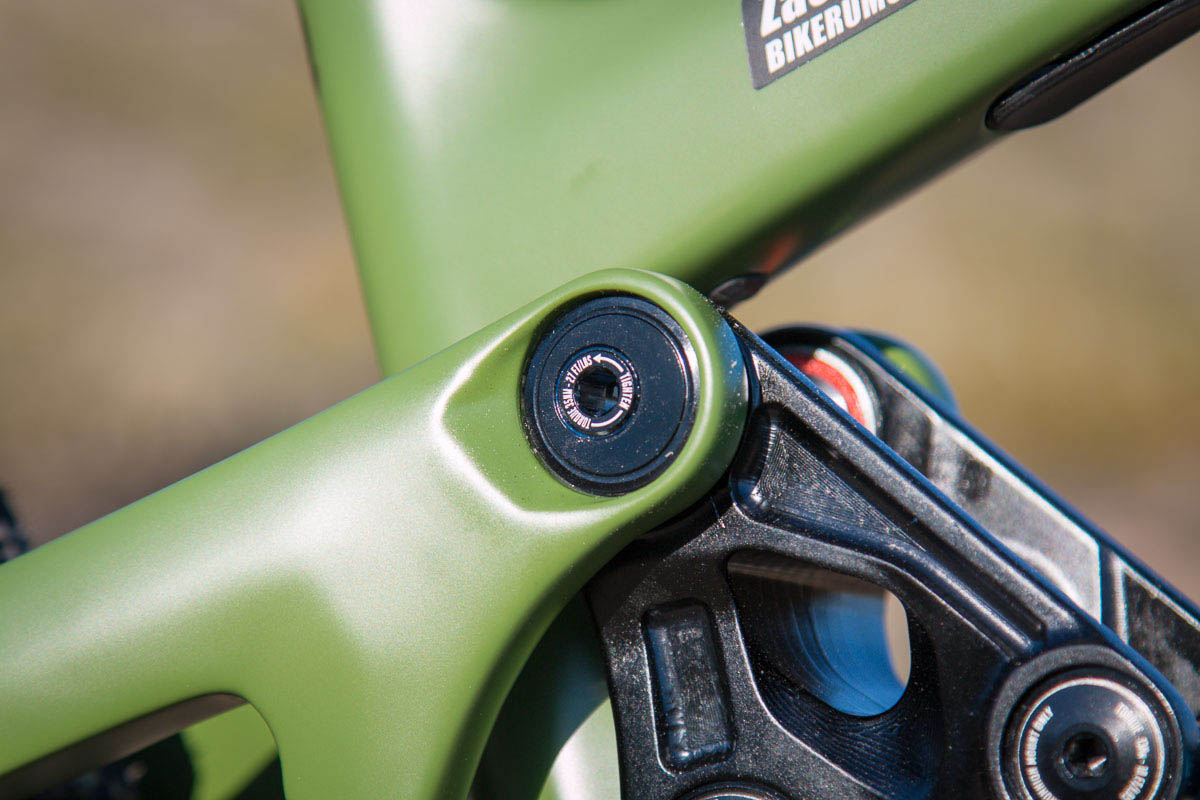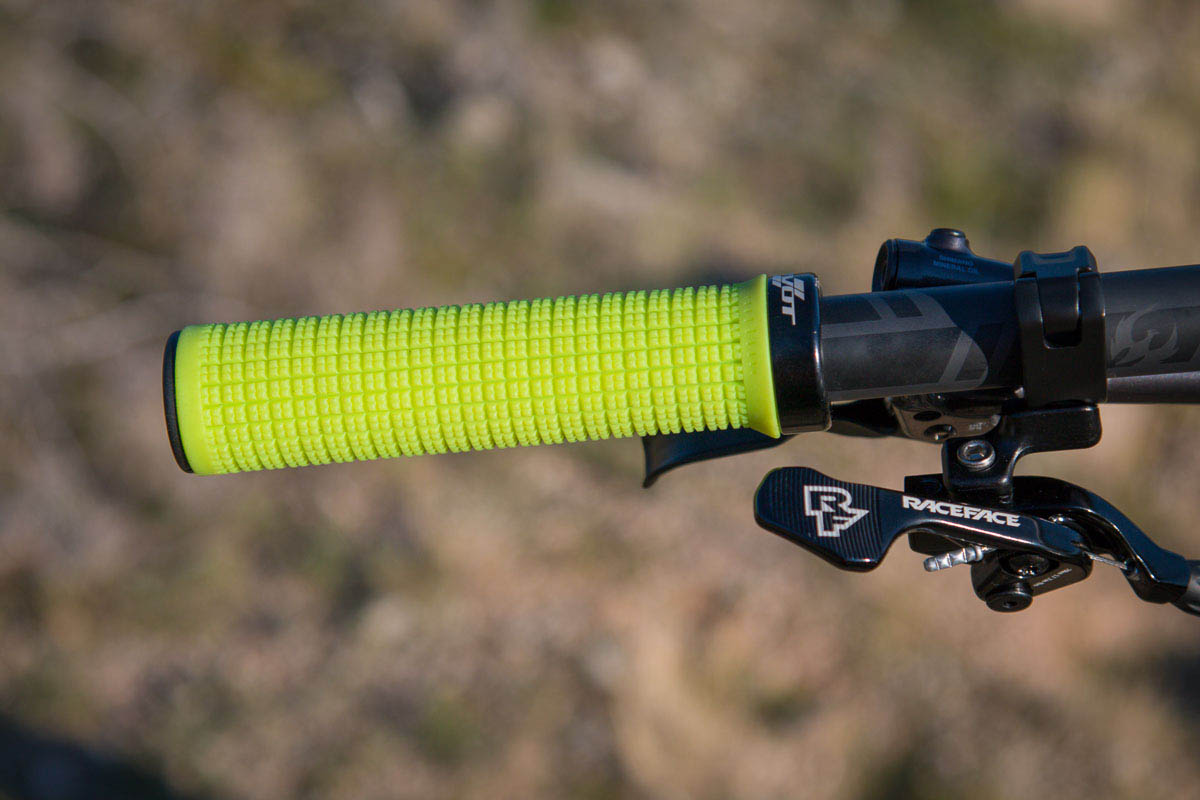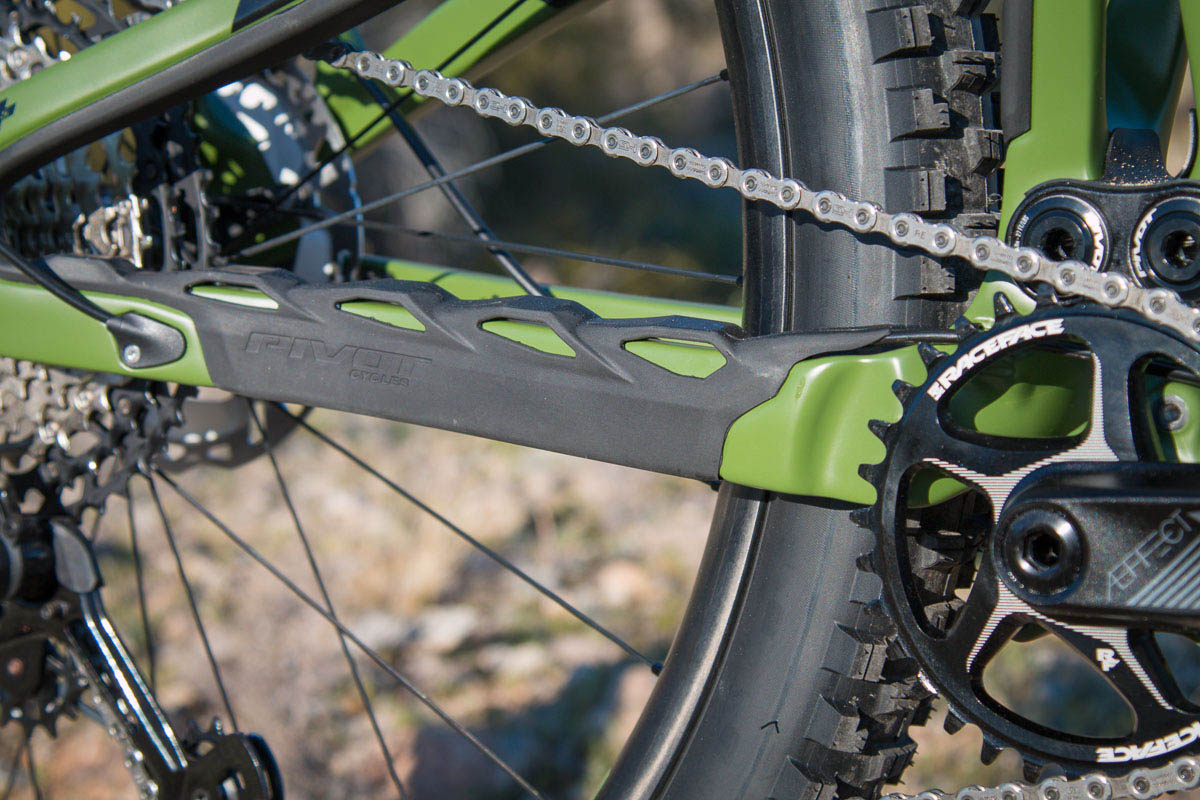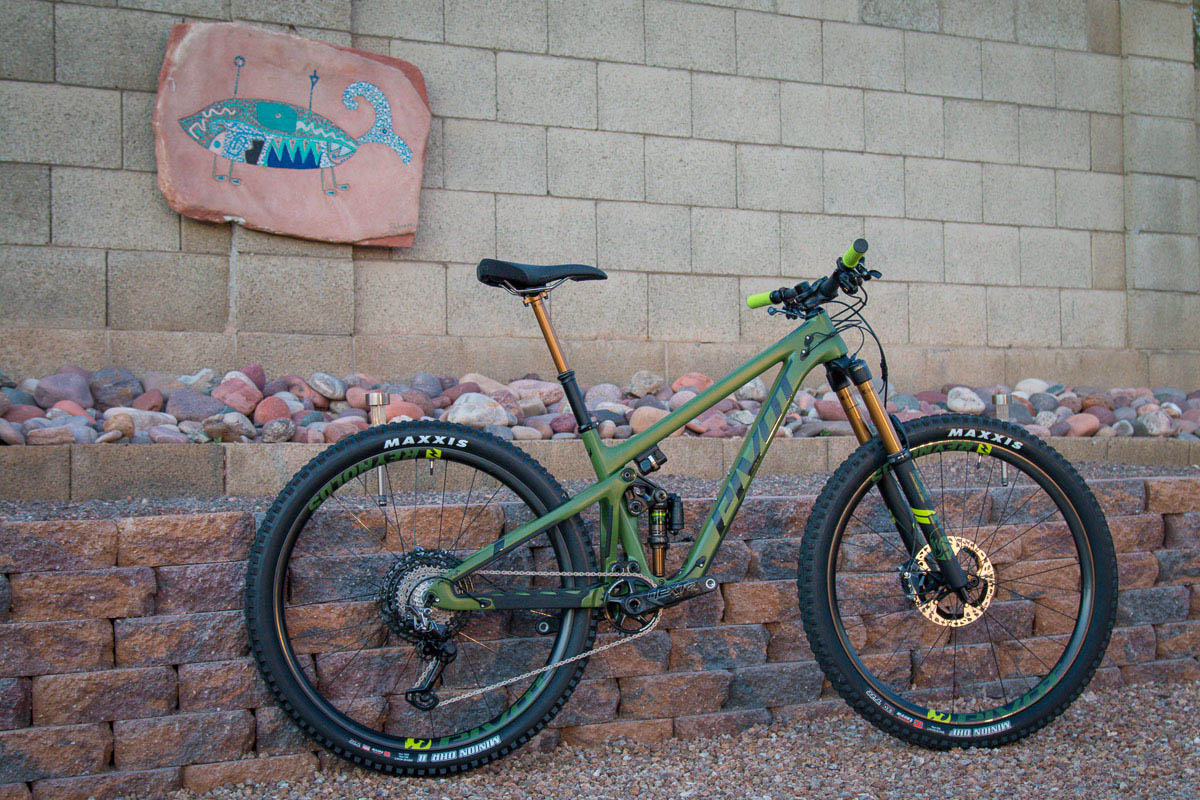Ever since the first Pivot hit the trails, it seems like the company has been cranking out the hits. For a brand with as many popular bikes as Pivot Cycles, it’s interesting to hear them comment on how popular the Switchblade has become. This seems to have a direct correlation with the Swtichblade’s ability to be that ‘one’ bike. The bike you can grab and head out for an adventure on just about any type of trail. The term quiver killer is one that is probably overused, but it seems to legitimately apply to bikes like the Switchblade.
The success and popularity of the Swtichblade meant that when it came time to think about the next generation, the task was not taken lightly. Unfortunately for Pivot, they managed to set the bar quite high with the original Switchblade – making it better would not be an easy task. How would they go about improving on the design? Well, it all starts with a completely new frame design…
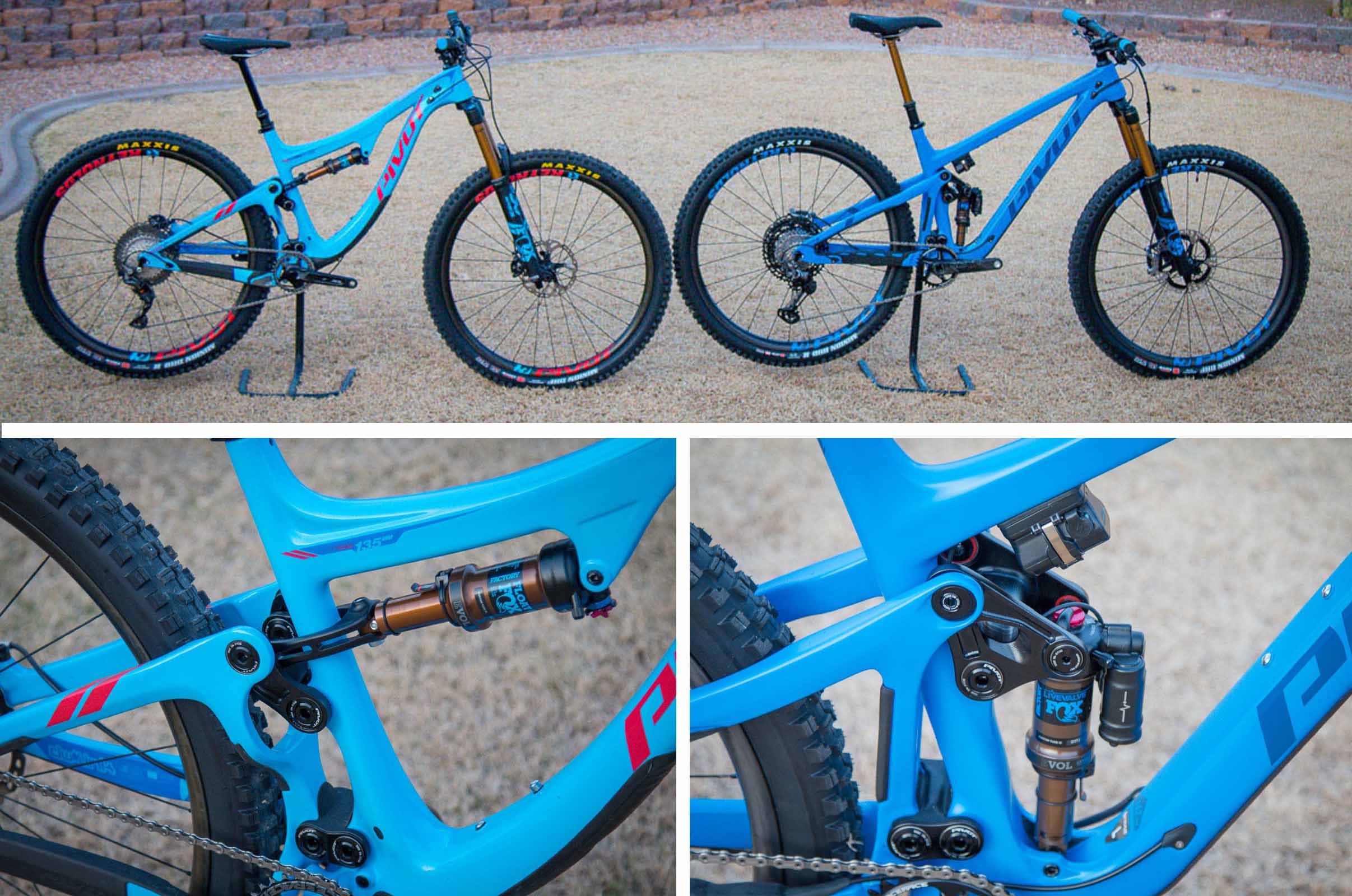
142mm of New Suspension Travel
Immediately apparent, the new Switchblade has switched up the shock configuration from a horizontal to a vertical placement. This change actually started back with the new Pivot Mach 4 SL. Pivot needed to build a World Cup XC race bike for Chloe Woodruff that had enough room in the frame for a bottle mount, Fox Live Valve, still had 29″ wheels and low enough stand over for a small rider. The best way to fit all of that into the frame was to change the bike to a vertical shock mount, and it’s carried over here.
Aside from making smaller bikes, there are a lot of additional reasons to go with the vertical mount. While rear travel was increased to 142mm, the shock stroke is still very close to the previous bike but the trunnion mount shock is actually shorter in overall length. Mounting the shock lower has obvious benefits like a lower center of gravity, more compact frame design, and the shock no longer needs a shock clevis so there’s fewer parts and a stiffer overall linkage. Pivot also says that the linkage is slightly longer which combined with a new shock tune and 431mm chainstays provides better traction.
Then there’s the fact that the shock rate is more progressive so it will work with coil shocks as well, but you may not want to evict the new Fox DPX2 just yet. This shock has an all new base valve and selector plate which is currently specific to Pivot. What does that mean? It means the shock has more support where needed while offering better oil flow to keep things plush on big hits. Note that even with the piggy back shock, there is plenty of room for a bottle cage with a large bottle.
At the front end, the bike is still meant to pair with a 160mm travel Fox 36 suspension fork with a 44mm offset fork.
Fox Live Integration
Like the Mach 4 SL, the new shock position on the Switchblade results in better integration of Fox Live Valve. You’ll find the mounting point just under the top tube above the rear shock. What are those extra mounts for? Pivot says those are for an additional accessory mount that will be released at a later date. Hmm…. Note that only the larger frames have two additional mounts under the top tube (smaller frames utilize one of the Fox Live mounting holes for the first accessory mounting hole). Riders of smaller frames will have to choose – Fox Live or this new accessory mount?
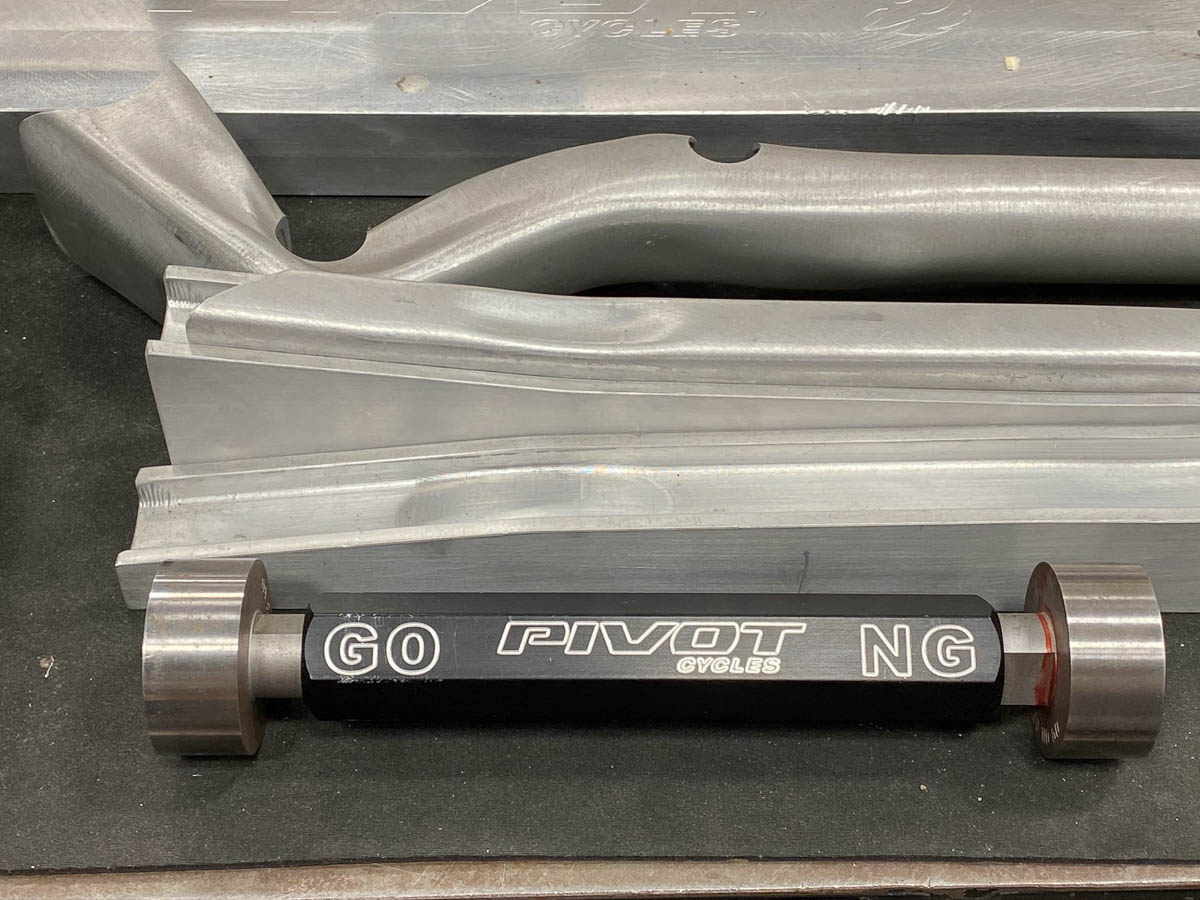
Frame Weight & BB
Constructed with Pivot’s proven Hollow Core Carbon process, each size specific frame pops out of the mold requiring minimal finish work. They’re also fairly light with a small frame w/o shock and hardware coming in at 5.7lb/2.57kg. Not really a surprise – Pivot is continuing with the PF92 press fit bottom bracket which does look to be impressively well molded. Chris Cocalis, Pivot’s Founder, has always claimed that the reason press fit bottom brackets have issues is that the bottom bracket shells are not molded to precise enough tolerances. Guarantee your BB is in spec, and you shouldn’t have any issues. Pivot’s bikes are checked at the factory, and every frame is also checked again in Arizona to make sure they are within spec.
Development
It’s always impressive to see Pivot’s aluminum prototypes that are built in-house. These test mules are crafted to a level that Pivot claims are identical in stiffness to the carbon frames. To get them there, the tubes and sections are often machined in multiple pieces and then welded together like an intricate jigsaw.
Pivot also uses their own 3D printer that they built to solve issues like the rear cable routing for the derailleur. In order to get the tire clearance and chainring clearance, the chainstay is actually solid carbon at the thinnest spot just behind the bottom bracket on the driveside. That meant that they couldn’t route the derailleur cable internally. So in order to make sure they got the routing position right as the cable arcs over the bottom bracket, they printed a working model of the suspension links. This way they could see how the cable would move as the suspension moved, and figured out how to tuck it away neatly.
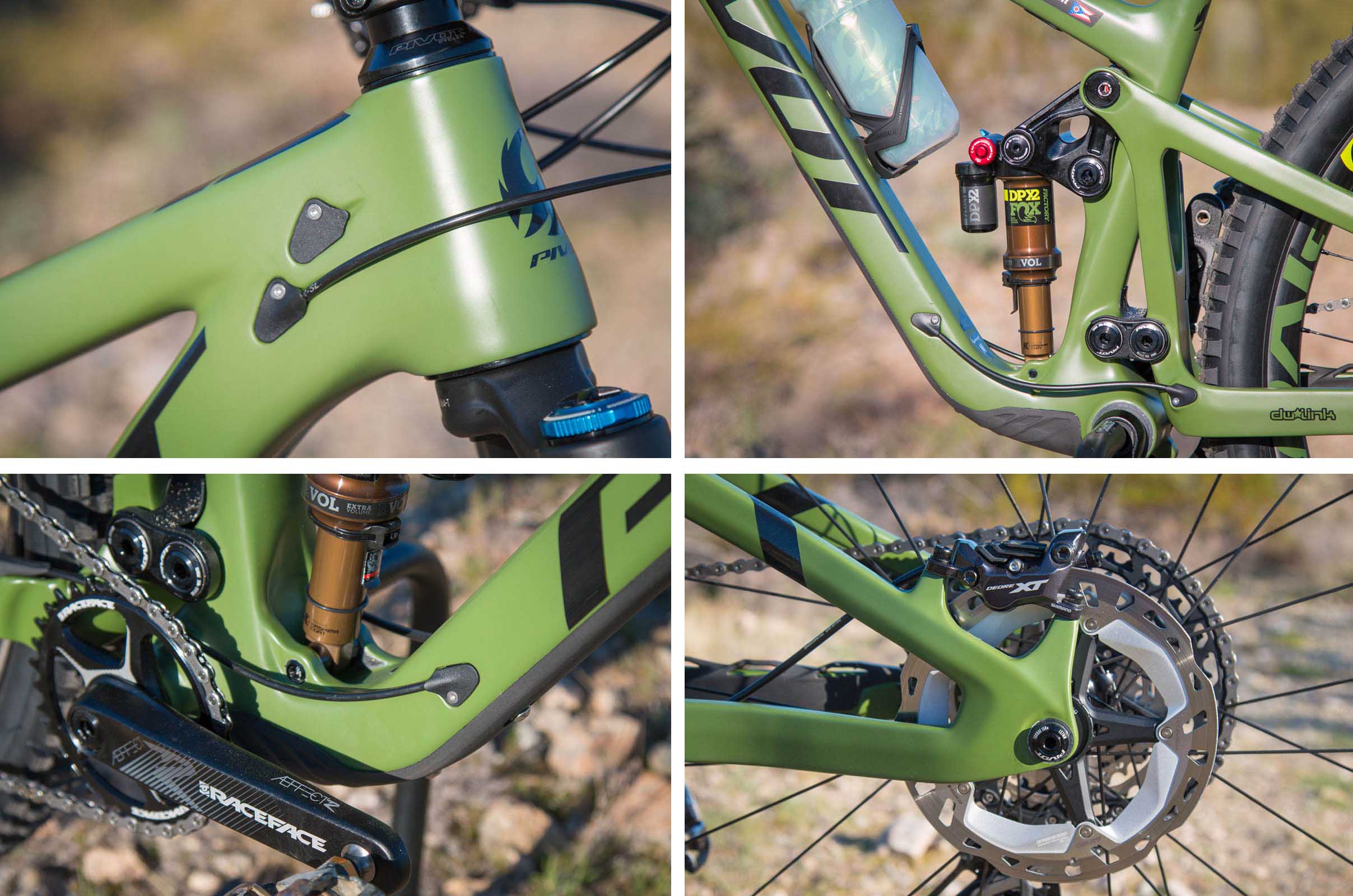 It’s pretty much a given at this point for Pivot, but the Switchblade uses their Pivot Cable Port System throughout the frame. The PCPS covers clamp down on the cables to keep them from rattling, and keeps everything nice and tidy.
It’s pretty much a given at this point for Pivot, but the Switchblade uses their Pivot Cable Port System throughout the frame. The PCPS covers clamp down on the cables to keep them from rattling, and keeps everything nice and tidy.
29″, 27.5+, Mixed, & Super Boost
Are you a fan of Plus tires? Don’t worry, the Swtichblade still has your back. Technically, the bike is compatible with 29″, 27.5+, and even 29/27.5″ mixed builds with actual tire clearance numbers of 29 x 2.6″ or 27.5 x 2.8″. Of course, that means the Super Boost 157 x 12 rear hub spacing continues as well.
Updated Geometry
More than just new looks and new suspension, the Switchblade has new geometry as well. While definitely more progressive than the past Switchblade, it’s not too crazy with a 75.5° seat tube angle and a 66° head tube angle with 431mm chainstays and 455mm reach for a medium. There’s also a flip chip at the upper pivot that adjusts the head angle and seat tube angle by 0.5° while raising the bottom bracket 3.5mm in the high setting. Further adjustment can be made by switching from the stock internal headset to the optional external cup to slack out the front end even more.
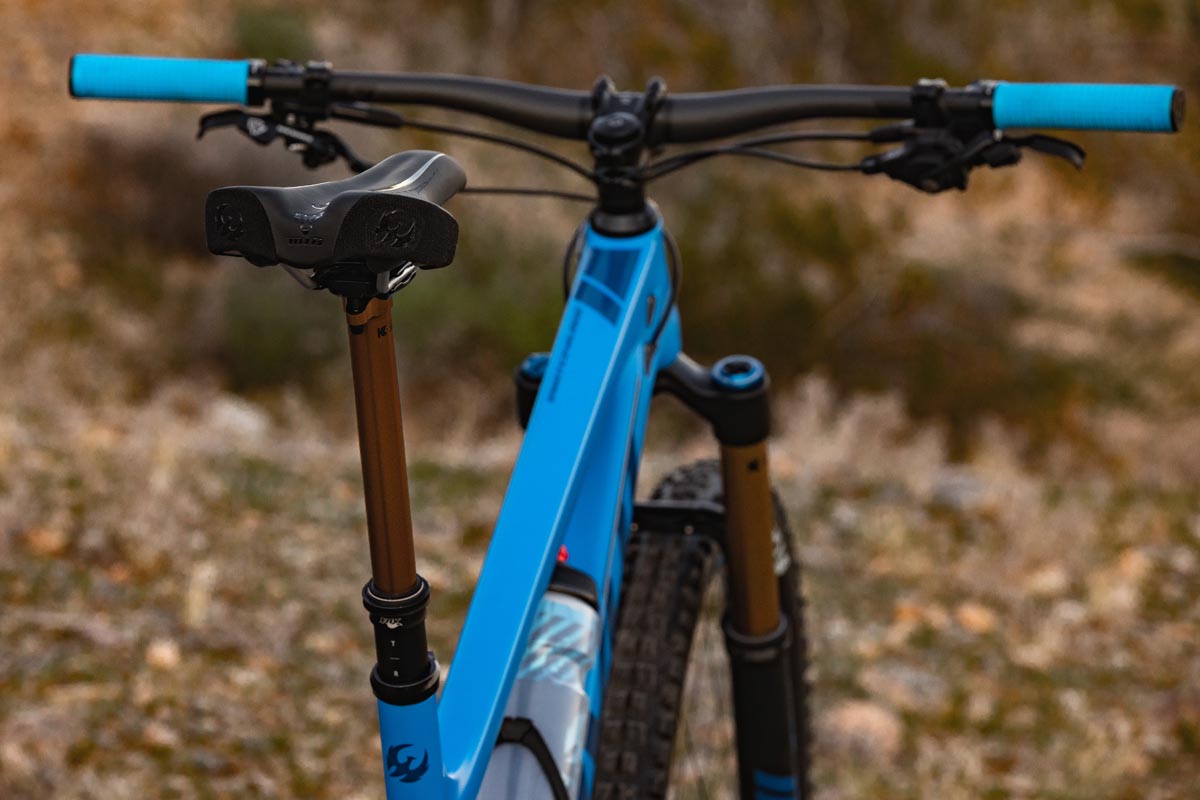
Longer Droppers
Since we all want as much dropper post as we can possibly have, the Switchblade frame has been optimized to fit the longest posts for all frame sizes. Not only are the seat tubes shorter to allow for more post up top, but they’re straighter down below to allow for more insertion. Additionally, the seat tube is closer to the centerline of the BB than before – that means really tall riders won’t have their saddles set back quite so far once their post is extended way up there. Stock bikes will include a 100mm dropper on XS, 125mm on S, 150mm on M, and 175mm travel on L & XL frames.
Awesome Grips
With everything else going on, it may be surprising to hear that the grips were a standout feature. Yes, the grips. PadLoc is gone. Meet the new Phoenix Factory Lock-On grips. They’re ergonomic, not too big or too small, super grippy, and impressively comfortable. We’ll have a full piece on these up later today, but they’re really good.
Speaking of improved rubber and plastic – the Swtichblade has a new low durometer chainstay protector that is designed to make things quieter. And it works. It also protects the rear derailleur cable where it enters into the chainstay just past the solid carbon part of the stay mentioned earlier.
How does it ride? What models will be available and how much? For those answers, make sure to check out our first ride review from Arizona, and the complete model overview – with a special sneak peek of the new Pivot Cycles headquarters to be!
